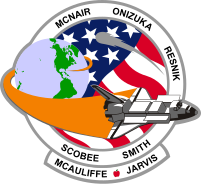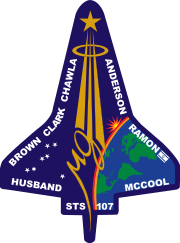Apollo, Challenger, and Columbia

- If we die, we want people to accept it. We are in a risky business and we hope that if anything happens to us it will not delay the program. The conquest of space is worth the risk of life.
Gus Grissom, Apollo 1 astronaut

This week marks three epic disasters in the United States space program’s history: the Apollo 1 fire that killed astronauts Ed White, Roger Chaffee and Gus Grissom during a routine training mission on January 27, 1967, the Challenger disaster that took the lives of astronauts Francis R. Scobee, Michael J. Smith, Judith A. Resnik, Ellison S. Onizuka, Ronald E. McNair, Gregory Jarvis, and Christa McAuliffe on January 27, 1986, and the loss of space shuttle Columbia on February 1, 2002, that killed Rick D. Husband, William C. McCool, Michael P. Anderson, Ilan Ramon, Kalpana Chawla, David M. Brown, and Laurel Clark.

It’s a rather poignant time for U.S. space exploration as we face the last shuttle launches and an unknown period of time where our country will NOT have a readily available way to get to space. There are hints and rumors that the new budget will not contain funds for the Ares program, and this has a lot of people wringing their hands in agony of our lack of space exploration capability. It’s not a wonderful coincidence that these cuts come as we remember those who gave their lives in pursuit of space exploration. But, I don’t see the loss of Ares funding as the tragedy that some do. In fact, I hope that it galvanizes us to dream up better ways to get to space — more efficient, less dangerous, and above all–accessible to any of us who want to go to space some day. If that happens, I think it will be a good way to salute the Apollo, Challenger, and Columbia crews who gave their all so we could explore. Let’s do them the honor of pushing forward and continuing our push to space regardless of the challenges we face at the moment.
And remember, we ARE still exploring space — from ISS, at the planets, and gazing out past billions of light-years with our orbiting telescopes. We’ll get ourselves out there someday, too.
